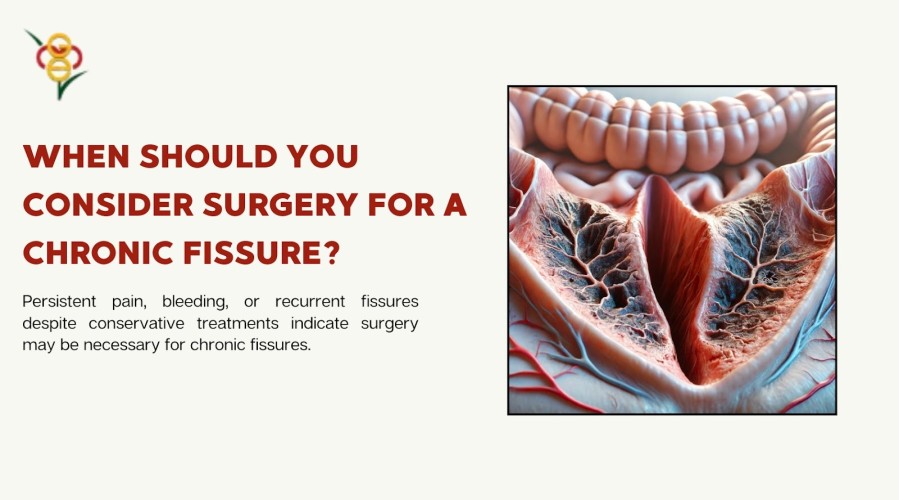Learn what gallstones are, their common symptoms, causes, and treatment options. Discover when to seek medical care and how to manage gallstone complications effectively.
When Should You Consider Surgery for a Chronic Fissure

When Should You Consider Surgery for a Chronic Fissure
Dealing with chronic fissures can be both uncomfortable and distressing. This post aims to guide those suffering from this condition, outlining when it might be necessary to consider surgery, along with other treatment options.
Understanding Chronic Fissures
A chronic fissure is more than just a temporary discomfort. It is a small tear in the anal canal that can cause significant pain and bleeding, especially during bowel movements. Unlike acute fissures, chronic ones do not heal easily and can persist for weeks or even months, leading to increased discomfort and a reduced quality of life.
Symptoms that Signal the Need for Professional Evaluation
If you're experiencing ongoing pain, bleeding, or irritation in the anal area, it's crucial to seek medical advice. Persistent symptoms are the primary indicators that your fissure has become chronic. Over time, you might also notice skin tags forming near the fissure, which are another sign that professional treatment may be necessary.
Conservative Treatments to Try Before Surgery
Before opting for surgery, there are several non-invasive treatments worth considering:
- High-Fiber Diet: Increasing your fiber intake can soften stool and reduce the strain during bowel movements.
- Sitz Baths: Sitting in warm water several times a day can help relieve pain and muscle spasms.
- Topical Medications: Applying topical creams can aid in healing and provide temporary pain relief.
When to Consider Surgery
Persistent Pain and Symptoms
If symptoms persist despite several weeks of conservative treatment, surgery might be the next step. Chronic fissures can sometimes develop extra tissue (sentinel piles) or expose underlying muscle, conditions that are unlikely to improve without surgical intervention.
Recurring Fissures
For individuals whose fissures heal but frequently recur, surgery can offer a more permanent solution. This can prevent the cycle of healing and tearing, providing a long-term relief.
Surgical Options for Chronic Fissures
The most commonly recommended surgery for treating chronic fissures is lateral internal sphincterotomy. This procedure involves making a small cut in the anal sphincter muscle to reduce spasms, relieve pain, and promote healing. The success rate for this surgery is quite high, and many patients experience significant symptom relief.
What to Expect After Surgery
Recovery from fissure surgery is generally quick. Most patients can return to their normal activities within a few days, with complete healing observed within a few weeks. It’s important to follow your doctor’s aftercare instructions closely to prevent complications or recurrence.
Schedule an Appointment at GEM Hospital
If you're struggling with a chronic fissure and conservative treatments haven't been effective, it might be time to consider surgery. Schedule an appointment with GEM Hospital to discuss your symptoms and treatment options. Our specialists are dedicated to providing relief and improving your quality of life through expert care.
Blogs & Article
Learn about bloating and gas problems, including common causes, symptoms, and effective solutions to improve digestion, reduce discomfort, and maintain gut health.
Learn how unverified Ayurveda treatments may cause liver damage, understand the risks, symptoms, and why medical guidance is essential for safe care.


